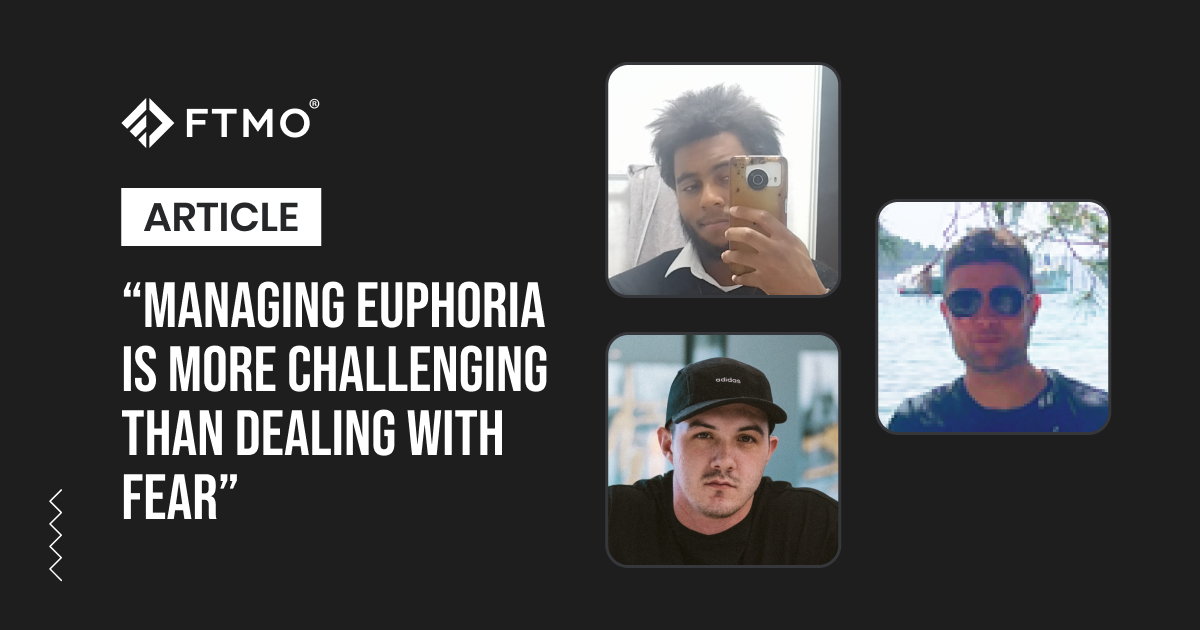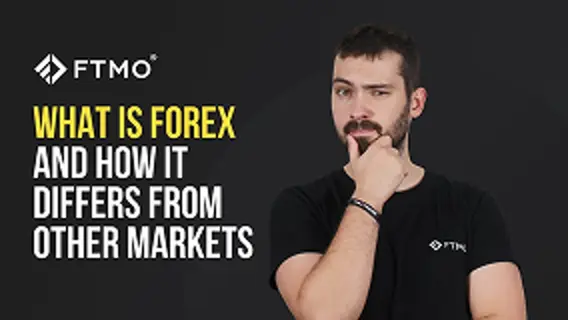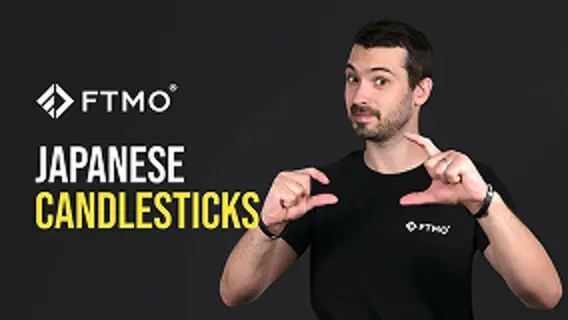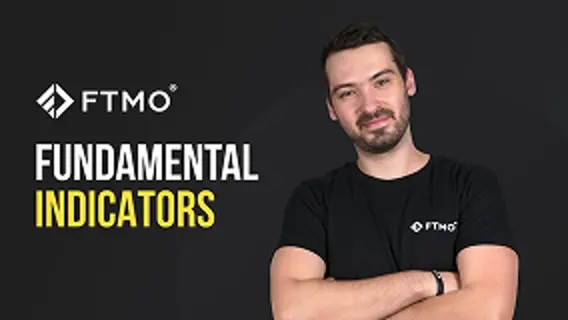
“Managing euphoria is more challenging than dealing with fear”
Emotions belong to trading, it is practically impossible to trade without them, but successful traders are able to manage them. It's not just about negative emotions like fear or anger at losses. Just as important is the ability to manage emotions when things are going well. How did our new FTMO Traders manage their emotions?
Trader: Carleon Anthony “Anything can happen, and predicting the next move is impossible.”

What does your risk management plan look like?
Risk management is a crucial aspect of any trading system, especially in the inherently probabilistic environment of trading. I believe in maintaining a risk management approach that not only delivers consistent results but also aligns with my psychological comfort, ensuring I can execute my plan with strict discipline. My risk management plan is risking 3% per trade, adhering to a strict risk reward ratio of 1:2. I let my trades run their course, only closing positions at the end of the day or when either my profit target is reached, delivering double what I risked, or my stop-loss is hit, which I treat as a business expense. The Market will either conform to my target or not. Drawdowns are a natural part of the business, I have a drawdown management plan where if I had 6 to 7 losing trades in a row, I will either change my risk from 3% to 1.5% per trade or taking a day off from the market which is my favourite option in my drawdown management plan as it allows me to execute my trading system on market conditions that are more favourable for my system's profit making ability.
How did you manage your emotions when you were in a losing trade?
I feel neutral when I lose a trade because the market operates on probabilities. Anything can happen, and predicting the next move is impossible. I trade consistently profitable by trading in a specific sample size that best suits for my system, knowing that over a 'series of trades' the probabilities often work in my favour. By focusing on the process rather than the result of any single trade, I can execute with strict discipline and confidence. Each trade is just one event within a larger sample, which helps prevent emotions like fear, frustration, or disappointment from influencing my actions. Understanding trading through a probabilistic perspective allows me to not feel fear because 'loss' or better known as an 'expense' is the cost of doing business, it’s part of the game and creates the opportunity for future profits and ever-growing equity curve.
Do you plan to take another FTMO Challenge to manage even bigger capital?
I will be happy take another FTMO Challenge in the future to manage larger capital. Growing my account size aligns with my long-term trading goals, and I’m confident in my system, business plan and the set of skills that I bring to trading to handle increased capital with discipline and consistency.

Has your psychology ever affected your trading plan?
Currently my psychology has only brought positives to my trading system and plans whilst the negative emotions doesn't influence how I execute my system. However, being a profitable trader, I find that managing euphoria is more challenging than dealing with fear. Euphoria can be more dangerous because it creates a false sense of security, making you forget that risk still exists especially in an unpredictable environment where anything could happen like the market. Fortunately, by sticking to my trading regimen and maintaining strict discipline, I’ve learned to manage these emotions more effectively. I now follow my trading system and business plan so closely that I don’t worry about breaking them, even in the heat of the moment.
How did you eliminate the factor of luck in your trading?
Well trading is based on probabilities, so I don't try to eliminate the factor of luck because it's an inherent part of trading. However, I minimize its impact by focusing on a structured and disciplined approach to my system. In fact, most business no matter the sector or industry, it operates in probabilistic environments but still have an upwards trajectory curve in their data charts, trading is no different when it comes to our equity curve. Therefore, outcomes can never be entirely predictable because if it was, then I eliminated the risk, which is a dangerous thought in trading, and I believe most profitable traders can agree on that statement. Outcomes can never be entirely predictable, however, by focusing on the consistency of my process over a 'series of trades', I ensure that luck becomes less of a factor. By sticking to my trading plan, following a strict risk management strategy and executing trades based on a well-tested system, I shift my results from being based on chance to being grounded in skill and discipline. In my opinion, over a period of time this approach reduces the reliance on luck and maximizes the role of probability and edge in my trading.
What is the number one advice you would give to a new trader?
My number one advice for a new trader would be to develop a probabilistic mindset. There are no secret strategies or magical concepts that will guarantee profits. Instead, find a trading system that you understand on a fundamental level can be as simple as you like, and practice it relentlessly through backtrading and forwardtrading on a demo account. Over time, not only will your execution of your preferred system will improve, but importantly your mental approach to the markets will also evolve. The real edge in trading comes from your mindset, understanding that the market operates on probabilities, not certainties. While others are focused on being 'right' in a single trade, you'll realize there's no 'right' or 'wrong' in a probabilistic environment. What matters is consistent execution over a series of trades, where your edge plays out, whether it's over 20 trades, 25 trades, 30 trades, etc whatever your sample size for your system. I highly recommend watching seminars or reading the books of Mark Douglas, a renowned trading coach who has helped countless traders across a wide range of experience levels, from individual retail traders to professionals working for firms and hedge funds transform their approach to the markets. All the best and work hard!
Trader Keegan Pierre: “Trading isn’t an instant success story”

Has your psychology ever affected your trading plan?
In the beginning but as I’ve grown as a trader and really developed my strategy it’s almost become mechanical now to keep emotions and psychological issues out of it.
Do you have a trading plan in place, and do you follow it strictly?
Yes, I have developed this strategy quite a while ago which is mechanical, and rule based. So, no matter what if I see this setup then I do A scenario and if I see this, I do B scenario.
Describe your best trade.
My best trade was probably an intraday trade. So, we basically had a reversal at daily highs, waited on confirmation with a retest entered the shorts and held it all the way down to daily lows for take profit.

What inspires you to pursue trading?
I just love understanding the markets, knowing how technical and fundamentals come together and create these patterns on the charts which we trade to make money. This is a career where the sky is the limit, but that limit is based on you and your ability and dedication.
What was more difficult than expected during your FTMO Challenge or Verification?
The verification I went through quite a bit more draw down then I wanted to, and I did let emotions get to me but once I regathered myself and trusted my strategy it slowly came back. So, it really tested my patience and emotions to hold on and bring this account back even if it took some time.
One piece of advice for people starting the FTMO Challenge now.
Trading isn’t an instant success story and it’s not about those 1 min of glory and unrealistic ideas. Rather focus on the skill and build up because in the end the dollar value is just a target, and anything is achievable.
Trader Mark Pascal: “Risk managing is key to the longevity of a trader.“

Describe your best trade.
GBPUSD this year buying off the price 1.2300, it aligned nicely on the fib, it was a price fill area with several confluences influencing my decision. This turned out to be an important price to get into a long-term trend for the year. I had the price and analysis marked weeks in advance and was just waiting to see how price was going to react. On the day it was pre-NY session and price started to bounce just above generating orders, I patiently waited as it looked like a fake move, price then took out those early buyers tapped into 1.23000 and rallied until now. Fundamentally we have had the strong Pound with sticky inflation and services, pair that with a weakening US economy and jobs market and now an aggressive Fed cut the trend is pushing higher.
How did you manage your emotions when you were in a losing trade?
One of the hardest parts of being a trader and something I am always trying to get better at. Preparation is key, weekend, daily mark ups are essential, having a plan and staying on top with all the fundamentals to ensure I can make the best possible decisions. Breathing exercises are very important, daily morning mediation helps to stay calm and Stoic.
What was the most difficult during your FTMO Challenge or Verification and how did you overcome it?
Failing a number of challenges in 2022 and another early this year put extra pressure on myself, and I was scared of failing again. Back in 2022 I was a very inexperienced trader and tried to run before I could walk, I wasn’t ready then to attempt challenges. This time I believed in myself, my strategy with nearly 4 years’ experience, I have come on a long way since then putting in so much work the last few years to become better.

How did loss limits affect your trading style?
I think they are great to have, they keep you in check and you need rules and limits in trading.
How did you eliminate the factor of luck in your trading?
All you can do as a trader is look what’s in front of you with the fundamentals / technicals and put an idea forward which makes sense. As long as I can lose less when I’m wrong and gain more when I’m right. Risk managing is key to the longevity of a trader.
What would you like to say to other traders that are attempting the FTMO Challenge?
Don’t just jump in with inexperience. Trading takes years and years of solid work every single day including weekends to learn this craft. There’s no short cuts or easy routes just hard work, commitment, passion, consistency like any venture in life. You get out what you put in.
About FTMO
FTMO has developed a two-step evaluation process to find trading talents. Upon successful completion, you may be eligible for an FTMO Rewards Account with a balance of up to $200,000 in simulated funds. How does it work?








